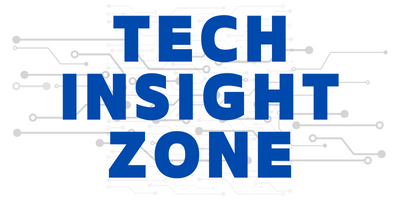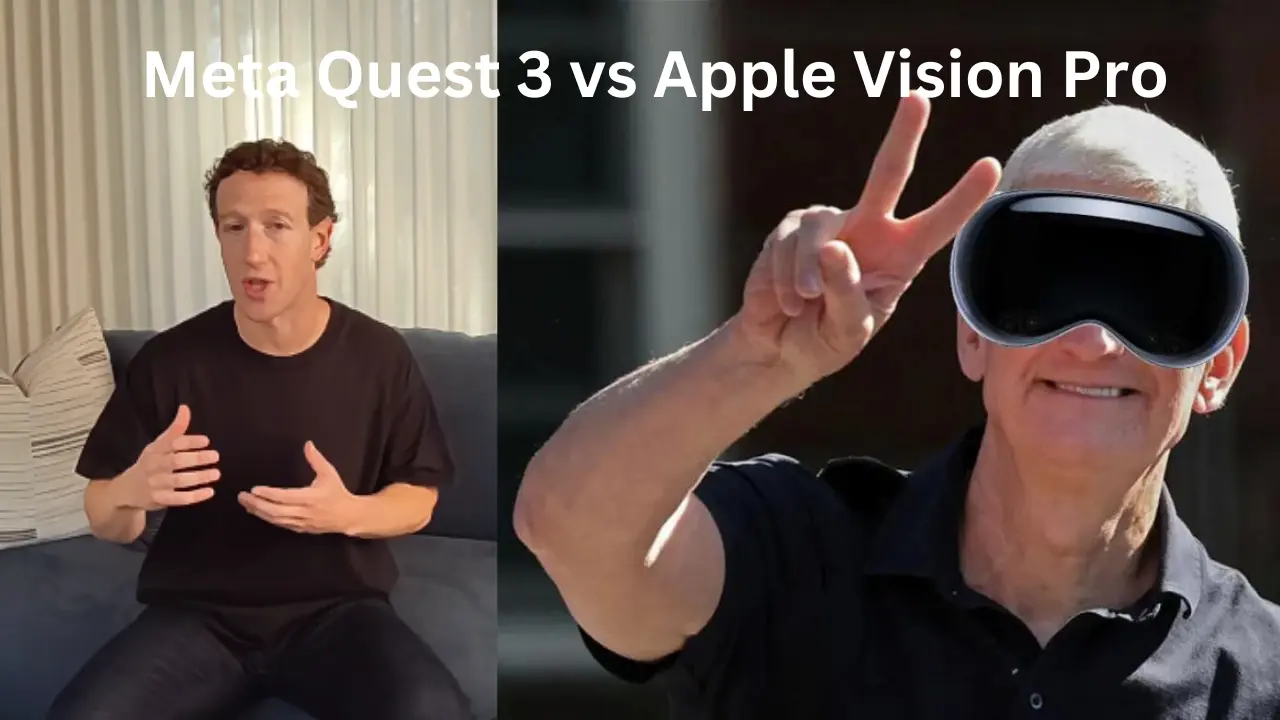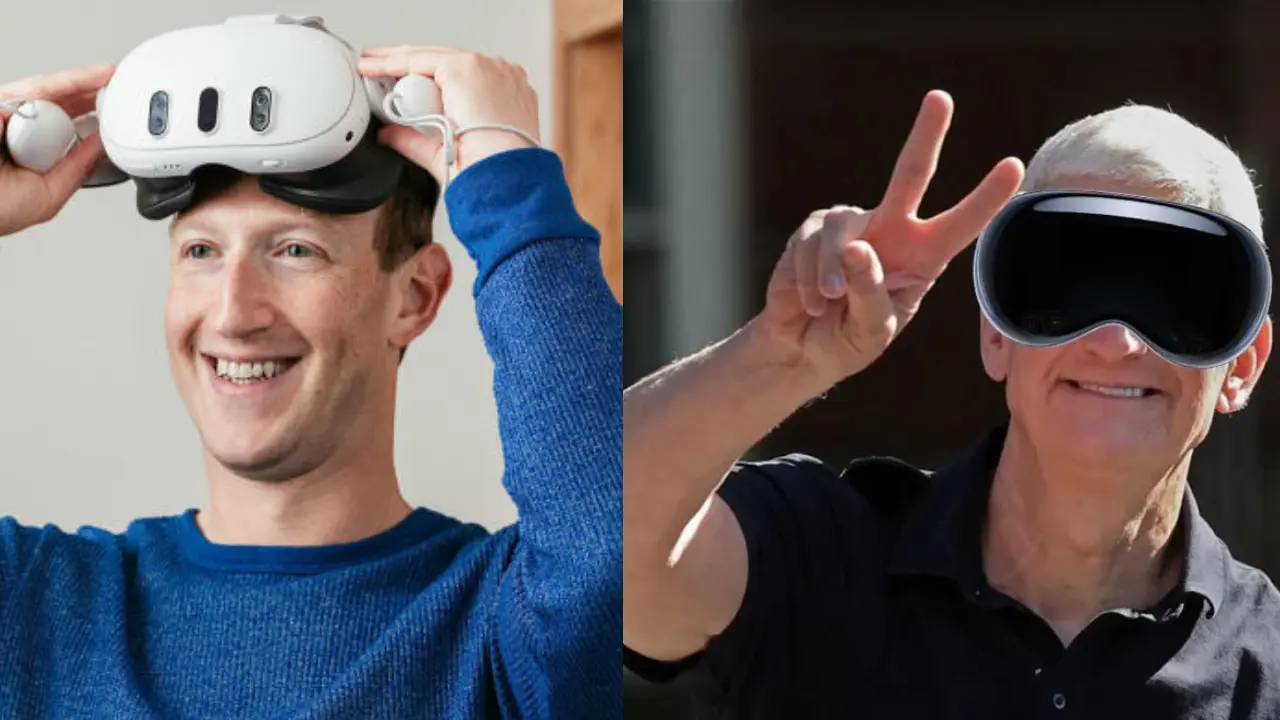When Mark Zuckerberg, CEO of Meta (formerly Facebook), took to Instagram to declare Apple’s new VR headset, the Vision Pro, “fundamentally worse” than his own Quest 3, the VR world took notice.
Was this a genuine critique from a tech titan, or simply a self-serving marketing ploy?
Let’s dive into the analysis:
Price Point Panic: David vs. Goliath in the VR Arena
The most glaring difference lies in cost. The Quest 3 sits comfortably at $599, while the Vision Pro boasts a jaw-dropping $3,999 price tag. Zuckerberg repeatedly emphasizes this disparity, positioning Quest 3 as the accessible option for the masses.
Is this just clever marketing? Probably not entirely. VR adoption remains relatively low, and affordability plays a crucial role in expanding the user base. However, it’s also a convenient comparison point, casting Apple as the elitist, out-of-touch giant.
Feature Face-Off: Eye in the Sky, Hand in the Game
While price grabs headlines, features determine user experience. Zuckerberg highlights specific areas where Quest 3 shines:
- Hand tracking: He praises Quest 3’s hand tracking accuracy, a technology still under development in Vision Pro.
- Content library: Meta’s early entry into the VR market translates to a larger, established library of games and experiences, crucial for user engagement.
- Comfort: The Quest 3’s lighter weight and ergonomic design receive Zuckerberg’s nod, potentially crucial for extended VR sessions.
However, Vision Pro counters with its own strengths:
- Eye tracking: This advanced technology enables more natural in-headset interactions, a feature absent in Quest 3.
- Display quality: Apple boasts a superior display with a wider field of view and higher resolution, offering a potentially more immersive experience.
- Processing power: The Vision Pro packs a punch in terms of raw processing power, potentially opening doors for demanding applications.
Zuckerberg acknowledges these strengths but deems them less relevant for the “vast majority” of users. This statement might hold true for casual users focused on gaming and fitness, but professionals seeking cutting-edge VR experiences might have different priorities.
The Battle Beyond Specs: Ecosystem and Ambition
It’s no secret that Meta and Apple have vastly different visions for the future of VR. Zuckerberg emphasizes the “metaverse,” a virtual world with social and economic potential, heavily reliant on Meta’s existing platforms and user base.
Conversely, Apple positions Vision Pro as a productivity and entertainment tool, integrated seamlessly within their existing ecosystem.
This differing ambition is reflected in product design. Quest 3 prioritizes accessibility and ease of use, aiming to attract mass adoption.
Vision Pro, on the other hand, takes a more targeted approach, catering to early adopters and professionals willing to pay a premium for cutting-edge technology.
Therefore, judging “better” becomes subjective. For individuals seeking an affordable, user-friendly gateway to VR, Quest 3 might be the more appealing choice.
But for those prioritizing cutting-edge features and integration with a specific ecosystem, Vision Pro could hold more value.
The Bottom Line: A Calculated Critique
Ultimately, Zuckerberg’s declaration serves a multi-pronged purpose:
- Boosting Quest 3 sales: Highlighting a competitor’s weaknesses while emphasizing your own strengths is a classic marketing tactic.
- Shaping the VR narrative: By positioning Meta as the champion of accessible, open-source VR, Zuckerberg strengthens his company’s vision for the metaverse.
- Sparking industry debate: The public critique ignites discussions about VR’s future, keeping Meta at the forefront of the conversation.
Therefore, while there’s merit in Zuckerberg’s specific feature comparisons, viewing his statement as an objective, unbiased review would be misguided. It’s a calculated move within a larger battle for the future of VR, where user experience, affordability, and ecosystem ambitions all play crucial roles.
The VR landscape is still evolving, and both Quest 3 and Vision Pro represent distinct approaches. Only time, and user preferences, will ultimately determine which device truly “sinks” and which one “buoys” the future of VR.
As Zuckerberg aims to redefine virtual reality experiences, the Apple Vision Pro’s return is marked by a surge in popularity, fueled by its unparalleled comfort, diverse app ecosystem, and stringent safety features. Explore how these titans clash and converge in shaping the future of immersive technology.





